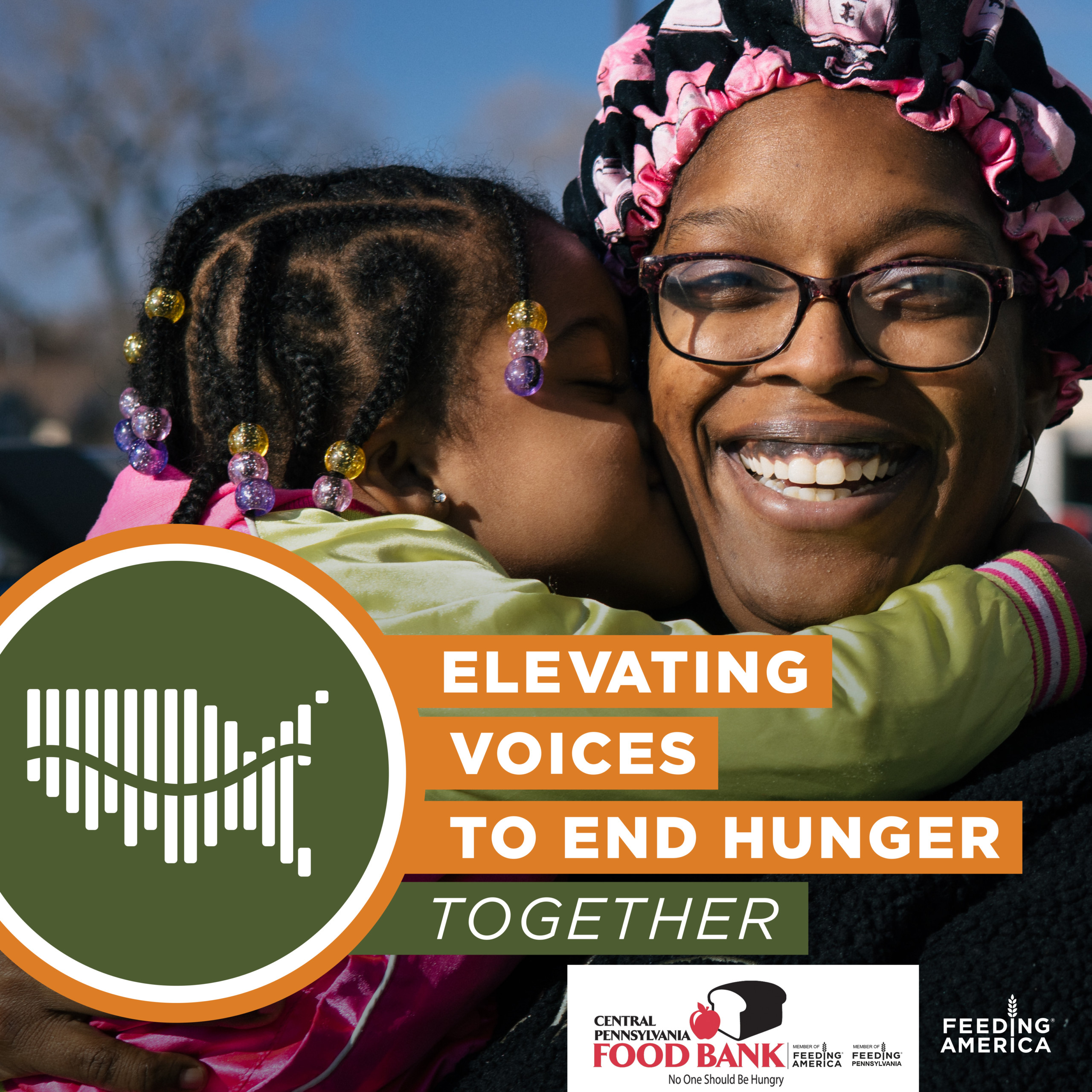White House Conference on Hunger, Nutrition & Health
On Wednesday, September 28, 2022, the White House will convene a conference about food insecurity for the first time in 50 years. You may view the live-streamed White House Conference on Hunger, Nutrition, and Health by registering online.
Over the past several months, the Biden-Harris Administration has heard ideas and stories from all Americans on how to end hunger and reduce diet-related diseases and disparities. There was a coordinate effort to invite input from those who’ve experienced the impact of hunger and diet related illness first-hand, including here in central Pennsylvania.
To inform the new national strategy, the Central Pennsylvania Food Bank asked our neighbors living with food insecurity about their experience with hunger and food assistance through listening sessions and surveys. We shared the summary of our sessions with Feeding America and the White House in a report: Food Insecure Americans Need Choice, Empowerment and Autonomy in Anti-Hunger Interventions. Feeding America analyzed the comments from citizens who use food banks from all over the country and compiled a report: Elevating Voices to End Hunger Together: Community-Driven Solutions to Address America’s Hunger Crisis.
Our neighbors in need know what would be most helpful for them, and that may differ significantly from person to person. Successful anti-hunger programs must reflect this autonomy; and to make a real difference, interventions provide the flexibility needed for families and individuals to use funds or programs in the way that best meets their unique needs. Public benefits should support people as they get back on their feet, not push the off a “benefits cliff” where one step forward (earning more income) can push you two steps back (losing all benefits with a higher collective value than the new salary).
Here in central Pennsylvania, and nationwide, other factors create barriers to economic stability – policies that perpetuate racially and geographic disparities, lack of reliable transportation, limited affordable housing, inflexible childcare options, jobs that have long, unusual shifts and low wages, or require internet access that isn’t available or reliable. To address food insecurity, we must address these issues, too.
There is no magic wand that will end hunger in America, but the COVID-19 pandemic provided a unique opportunity to test how certain public policies work to help people get back on their feet when they experience food insecurity. From our research and listening sessions, it is clear the issue of food insecurity must be addressed holistically. Solutions to issues like transportation, housing, and health care are solutions to food insecurity. Our neighbors facing hunger support policy recommendations that prioritize dignity, increase access to health food, expand opportunities and improve health.
We have the chance to act now to make permanent, effective change for our neighbors in need. We are encouraged by a new national strategy that will work effectively to eradicate hunger.
Learn more:
White House Conference on Hunger, Nutrition & Health
Biden-Harris Administration National Strategy on Hunger, Nutrition and Health
Feeding America Report: Elevating Voices to End Hunger Together

